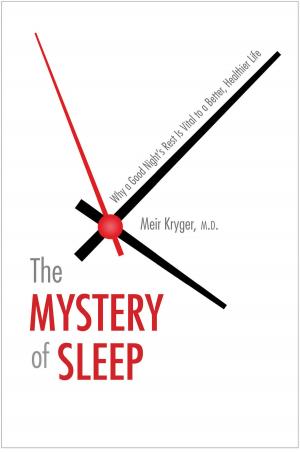Kabbalah
A Neurocognitive Approach to Mystical Experiences
Nonfiction, Health & Well Being, Psychology, Neuropsychology, Religion & Spirituality, Inspiration & Meditation, Mysticism, Judaism| Author: | Shahar Arzy, Moshe Idel | ISBN: | 9780300152371 |
| Publisher: | Yale University Press | Publication: | June 30, 2015 |
| Imprint: | Yale University Press | Language: | English |
| Author: | Shahar Arzy, Moshe Idel |
| ISBN: | 9780300152371 |
| Publisher: | Yale University Press |
| Publication: | June 30, 2015 |
| Imprint: | Yale University Press |
| Language: | English |
In this original study, Moshe Idel, an eminent scholar of Jewish mysticism and thought, and the cognitive neuroscientist and neurologist Shahar Arzy combine their considerable expertise to explore the mysteries of the Kabbalah from an entirely new perspective: that of the human brain. In lieu of the theological, sociological, and psychoanalytic approaches that have generally dominated the study of ecstatic mystical experiences, the authors endeavor to decode the brain mechanisms underlying these phenomena. Arzy and Idel analyze first-person descriptions to explore the Kabbalistic techniques employed by most prominent Jewish mystics to effect bodily reduplications, dissociations, and other phenomena, and compare them with recent neurological observations and modern-day laboratory experiments. The resultant study offers readers a scientific, more brain-based understanding of how ecstatic Kabbalists achieved their most precious mystical experiences. The study further demonstrates how these Kabbalists have long functioned as pioneering investigators of the human self.
In this original study, Moshe Idel, an eminent scholar of Jewish mysticism and thought, and the cognitive neuroscientist and neurologist Shahar Arzy combine their considerable expertise to explore the mysteries of the Kabbalah from an entirely new perspective: that of the human brain. In lieu of the theological, sociological, and psychoanalytic approaches that have generally dominated the study of ecstatic mystical experiences, the authors endeavor to decode the brain mechanisms underlying these phenomena. Arzy and Idel analyze first-person descriptions to explore the Kabbalistic techniques employed by most prominent Jewish mystics to effect bodily reduplications, dissociations, and other phenomena, and compare them with recent neurological observations and modern-day laboratory experiments. The resultant study offers readers a scientific, more brain-based understanding of how ecstatic Kabbalists achieved their most precious mystical experiences. The study further demonstrates how these Kabbalists have long functioned as pioneering investigators of the human self.















